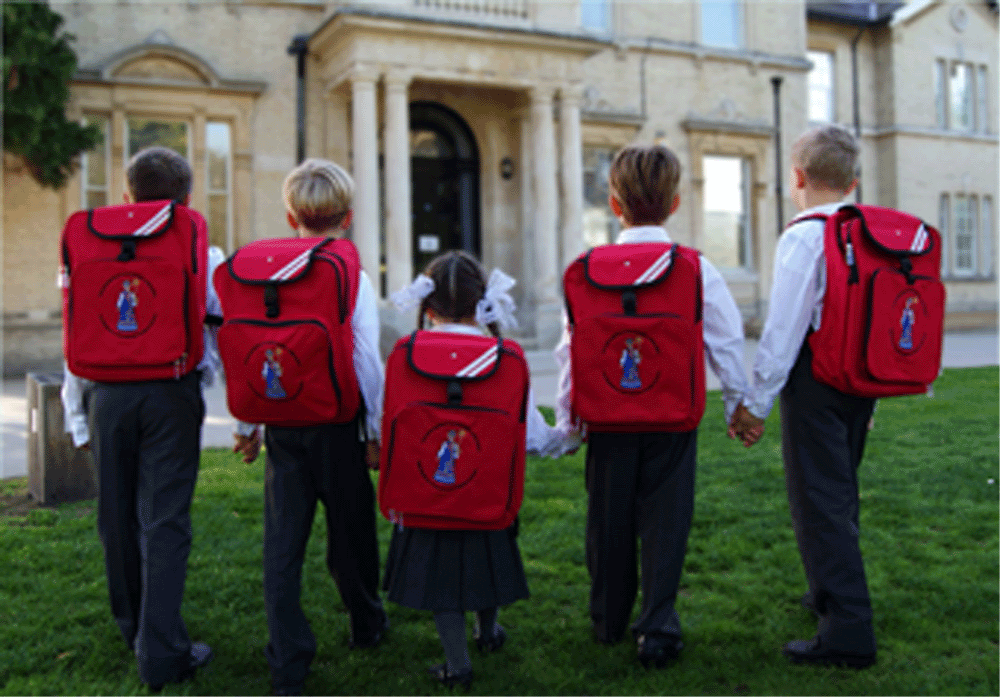SCOTLAND’S biggest council has told schools to relax uniform standards because their students are too poor to afford it.
Before school started in mid-August every teacher in Glasgow was issued with a new set of guidelines.
They tell teachers to allow pupils longer to replace scruffy items of uniform and to go easier on those from low income families who fail to follow school clothing rules.
The rules come in response to an investigation into the cost of a state education in Glasgow – where up to 50% of children live in poverty.
But they are in stark opposition to drives among schools in the rest of the UK – where headteachers are enforcing “Gestapo” uniform policy, often to the dismay of parents.
The rules – issued by Glasgow Council’s Education Services – read: “Poverty has the potential to affect all parts of the school day and that costs can put up barriers to children and young people enjoying and taking part at school.

“We want to ensure that school costs do not place undue pressure on family budgets, that all children are able to access opportunities and that potential for poverty-related stigma and difference is reduced.
“Schools should take account of the need for replacement items throughout the year and weather appropriate clothing. Families should be given an appropriate amount of time to purchase replacement items.
“If pupils do not wear correct uniform then income related issues should be considered when approaching the issue with pupils.”
It goes on to tell teachers: “School uniforms should be affordable for families on low incomes.
“Schools should design their uniform policies with very minimum costs at the forefront of their minds.
“Recycling or reduced price uniform schemes must be administered sensitively to avoid stigma or embarrassment.”
The website for council-run St Roch’s RC high school in the city’s Rhymer Street has a section on school uniform which links to John Lewis online. Individual items costs £8 – £28 while another supplier offers a school blazer online for £50. Fully kitting out a pupil is likely to cost well in excess of £100.
The new rules come after a council-backed investigation into the cost of the school day and the “toxic impact” which poverty can have on children’s education.
The investigation – titled The Cost of the School Day – found that “although uniform minimises visible differences it is still the main indicator of income and the first thing to be picked on.
“Strict dress code enforcement embarrasses young people and quickly replacing items of uniform can be difficult if parents don’t have immediate access to funds.”
Whilst Glasgow teachers are being told to relax standards, teachers across the UK are stepping up efforts to enforce strict uniform policy.
Earlier this month Matthew Tate, the headmaster at Hartsdown Academy in Margate, Kent was compared to the Gestapo after sending home around 50 pupils for uniform violations.
In spite of outrage from parents and the police being contacted Mr Tate maintained his hard stance – sending 20 more pupils home the next day.
A spokesman for the Scottish Government said: “Local authorities are responsible for their own school uniform policy, as part of their responsibilities for school rules.”
The new rules issued to teachers also tell them they should ensure pupils are not made to pay for stationary or meet the cost of expensive school trips.
It also says they should not assume pupils have access to a computer for homework activities.
Primary schools have similarly expensive uniforms – which pupils will often grow out of at twice the speed.
Blazers for the Glasgow Gaelic School in Finnieston are being retailed online for as much as £69.95.
Meanwhile fleeces for Ibrox Primary School set parents back around £16.99.
Many vendors also sell scrunchies, hats and bags ranging in price anywhere from £3 to £10 in price.
Bailie Liz Cameron, executive member for children, young people and lifelong learning at Glasgow Council said: “This has been a really important piece of research and the outcomes and guidance will help shape future decisions to help reduce the impact of poverty on our families.
“Our aim is to remove as many barriers to learning as possible – a number of which have been identified during this important project.
“Many of our families struggle to make ends meet so we are committed to make a difference and help by looking at some of the hidden school costs and try to remove at least some pressures from parents and importantly, their children.”
Scottish Conservative shadow education secretary Liz Smith backed a more flexible approach to uniforms, but said they “should be a matter for the individual schools to decide on.
She added: “It’s worth noting that many schools have this policy because it’s what teachers and parents want.”
A spokeswoman for teachers’ union the Educational Institute of Scotland (EIS) said: “While the EIS is supportive of uniform policies in general, we do have concerns over the financial impact on families of some school uniform policies.
“For example, where a school requires all pupils to wear a blazer, or where a school has a preferred supplier of school uniform, perhaps with the school logo sewn onto items. This can lead to these items being significantly more expensive than generic items, with implications for many families and particular those with lower incomes.
“It is important that uniform policies are appropriate for the school in question, and take account of the circumstances of families within the school community.
“While uniform policies in general can help to mitigate against socio-economic differences, overly restrictive policies can be counter-productive and create additional difficulties for families and for pupils.”
